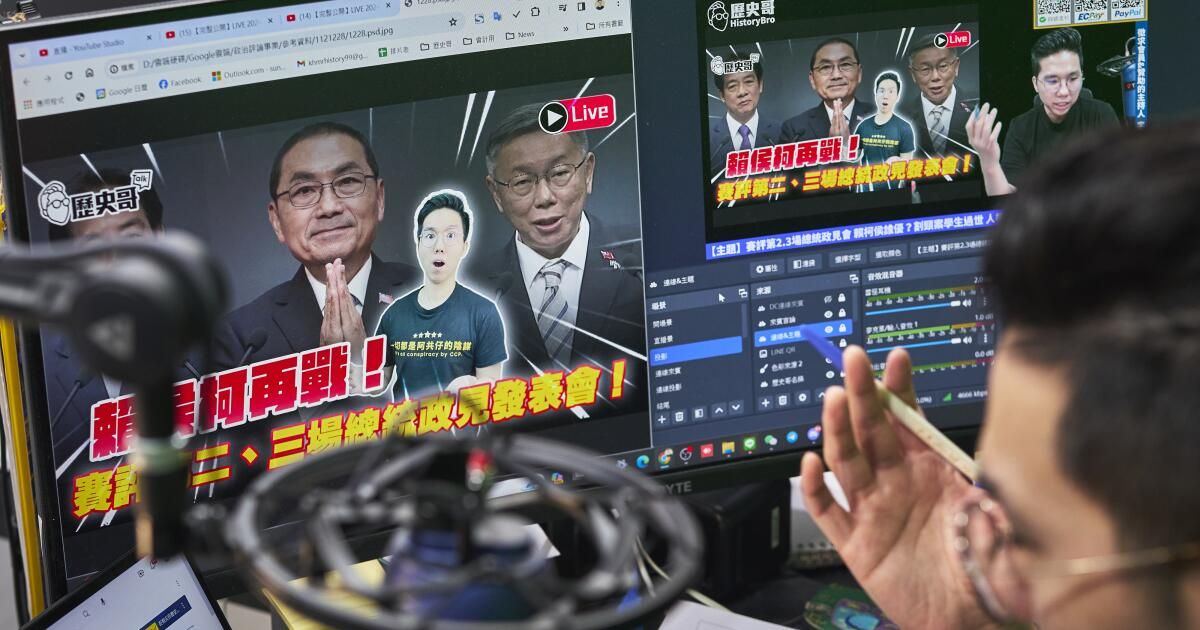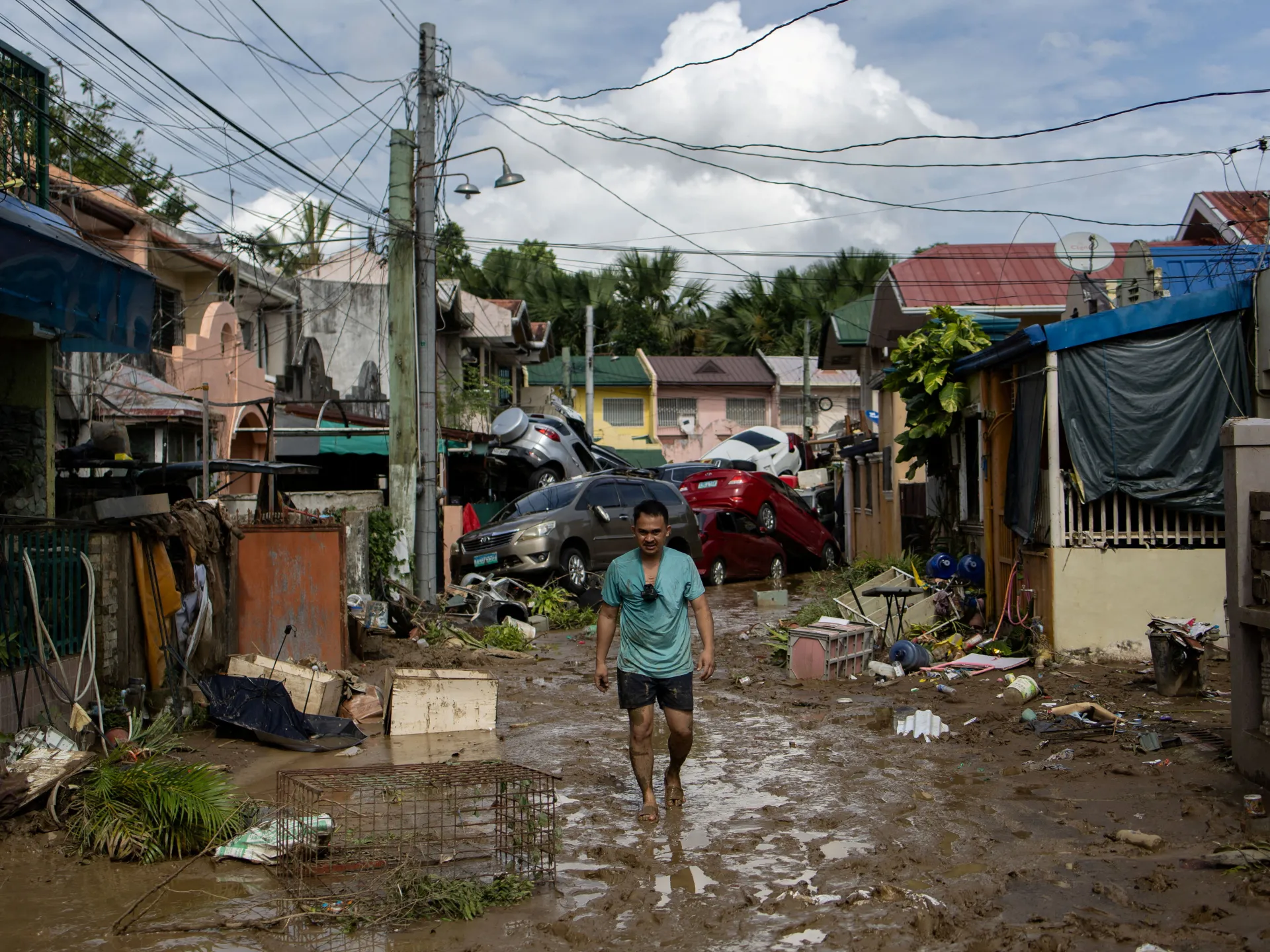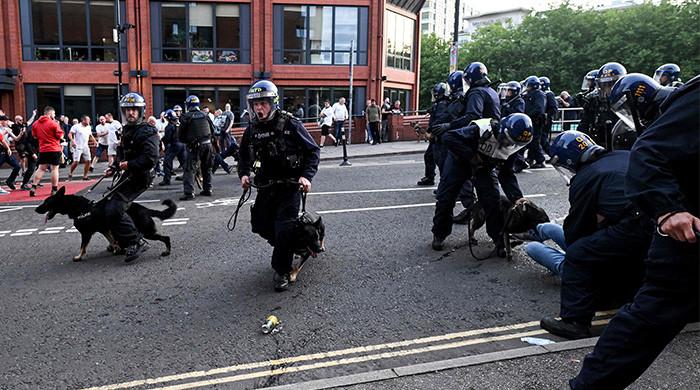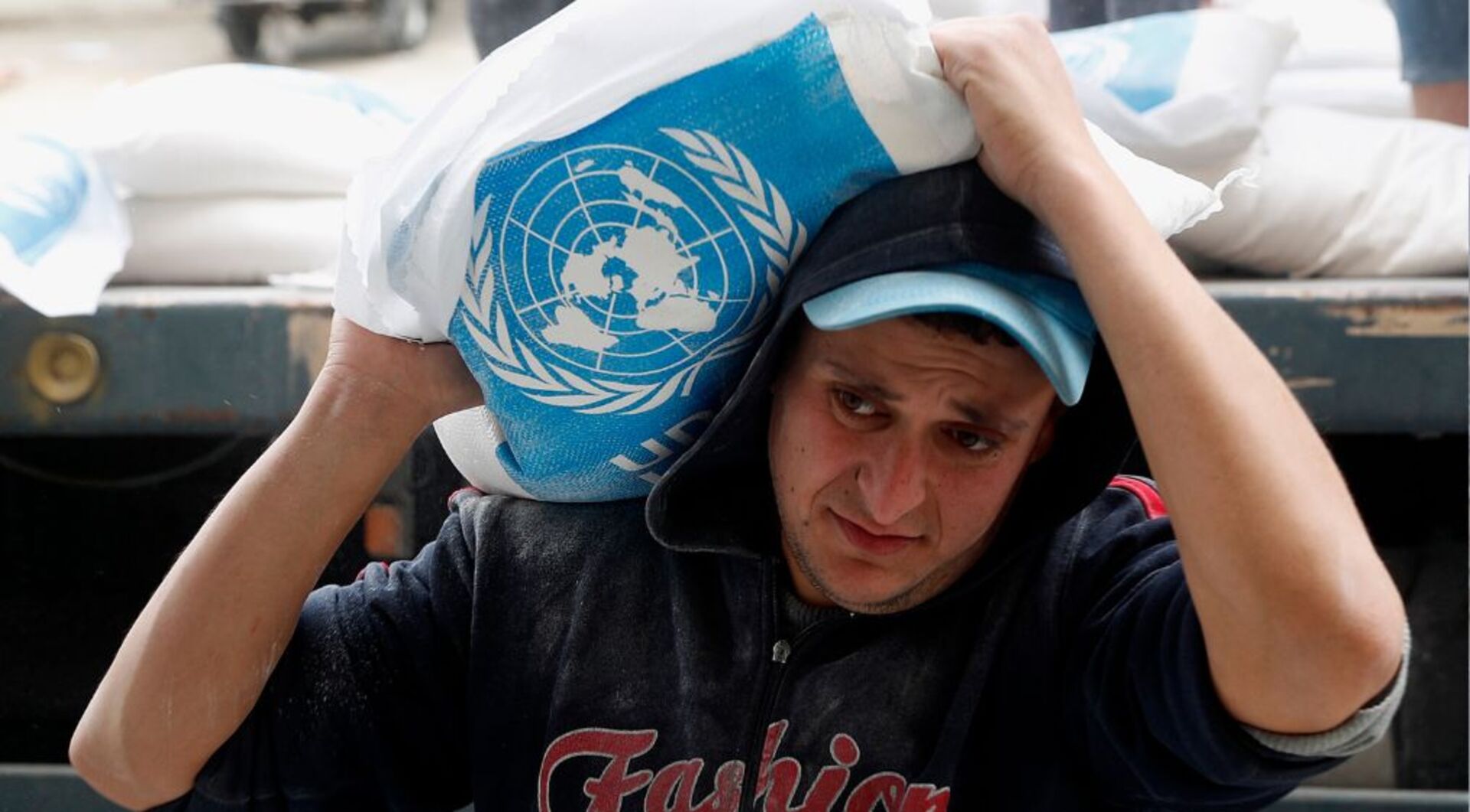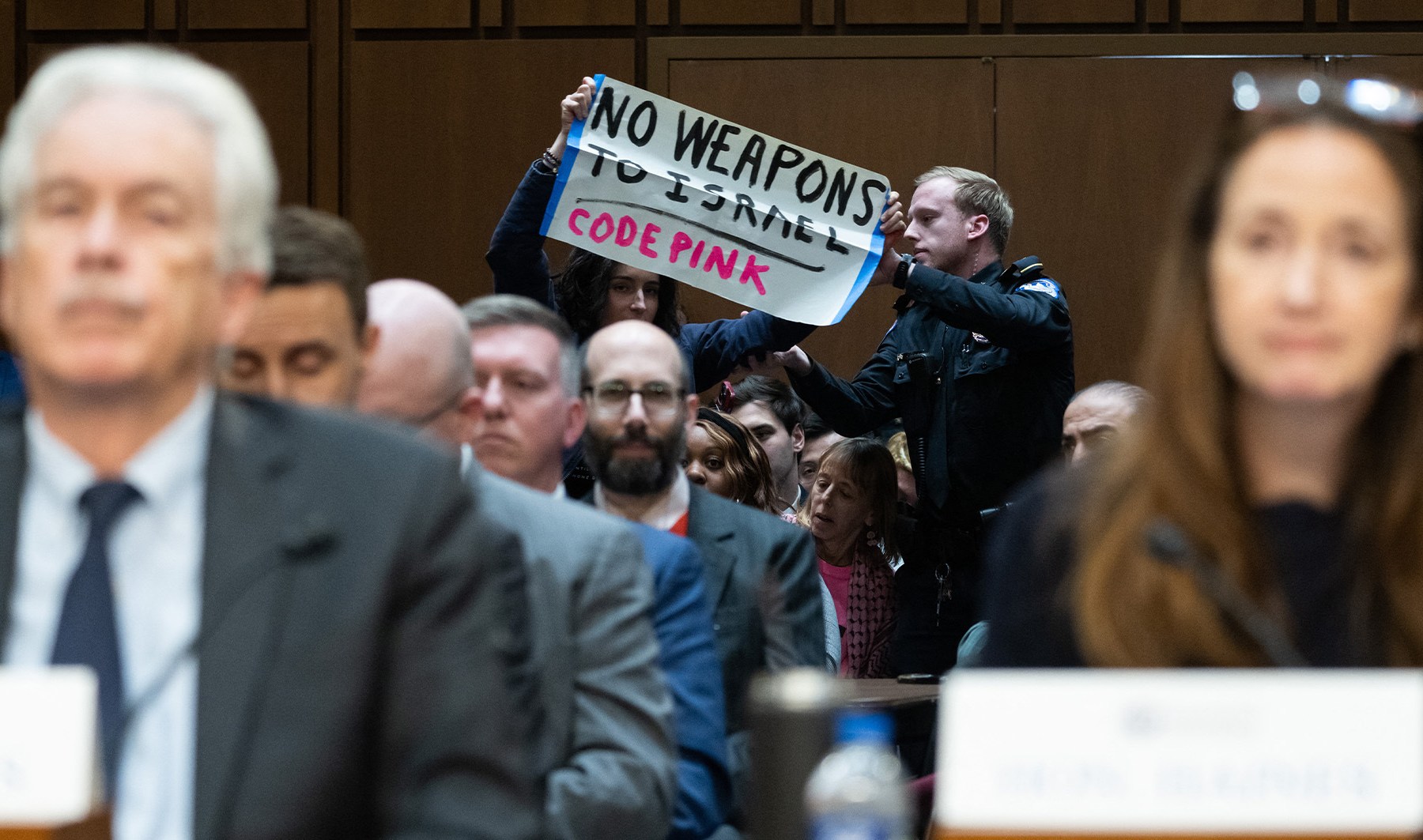Jackie Chiang remembers when her father-in-law was gentle and kind, taking her grandchildren to school and peeling cooked shrimp for her at the table.
These days, he struggles silently in front of the television, convinced by the political commentators he watches that if Taiwan's ruling party wins another presidential term, war will be the consequence, and the United States will not lift a finger to stop it.
“You are going to die, your children are going to die, my children are going to die, we are all going to die. Why do you want to do that? “Chiang, who lives in the city of Taoyuan in northwestern Taiwan, summoned his father-in-law and other relatives of his.
Fear that the Democratic Progressive Party (DPP), together with the United States, is bringing the self-ruled island closer to combat has become a common refrain ahead of Saturday's presidential election in Taiwan. It is also one of the narratives that mainland China has spread in recent months through state media, fake Internet accounts and Taiwanese commentators in a widespread and increasingly sophisticated disinformation campaign, independent researchers say.
Vice President Lai Ching-te, presidential candidate (front left), travels in a campaign motorcade in Kaohsiung, Taiwan, on Monday.
(Yasuyoshi Chiba / AFP/Getty Images)
On Line, a popular messaging app in Taiwan, Chiang's group chats have been inundated with such claims. Since the middle of last year, many of the forwarded messages have presented grim images of war-torn Ukraine and warned of the possibility of a similar conflict at home. Some posts have been taken directly from mainland Chinese platforms, such as short video apps Douyin, owned by the same parent company as TikTok, and Bilibili.
“Vote for the PDP and the youth will go to war,” reads the caption of a photograph showing tanks and soldiers. “People need to wake up. Only you can save your own lives.”
Chiang's in-laws stopped posting anti-DPP photos and articles to the family group chat after her brother-in-law began responding with fact checks, but she suspects their news sources haven't changed.
“They get fake news every day,” said Chiang, 51, who teaches at a test preparation center. “It's gotten really extreme.”
Chinese President Xi Jinping's determination to claim sovereignty over Taiwan by any means necessary makes the island of 23 million people one of the biggest targets of foreign disinformation in the world, according to V-Dem, a Swedish research institute.
Chinese officials have accused the frontrunner in Saturday's election, Vice President Lai Ching-te of the DPP, of making “separatist” comments and bringing Taiwan to the brink of war. Beijing has refused to engage with current President Tsai Ing-wen, who has strengthened ties with the United States during her eight years in office.
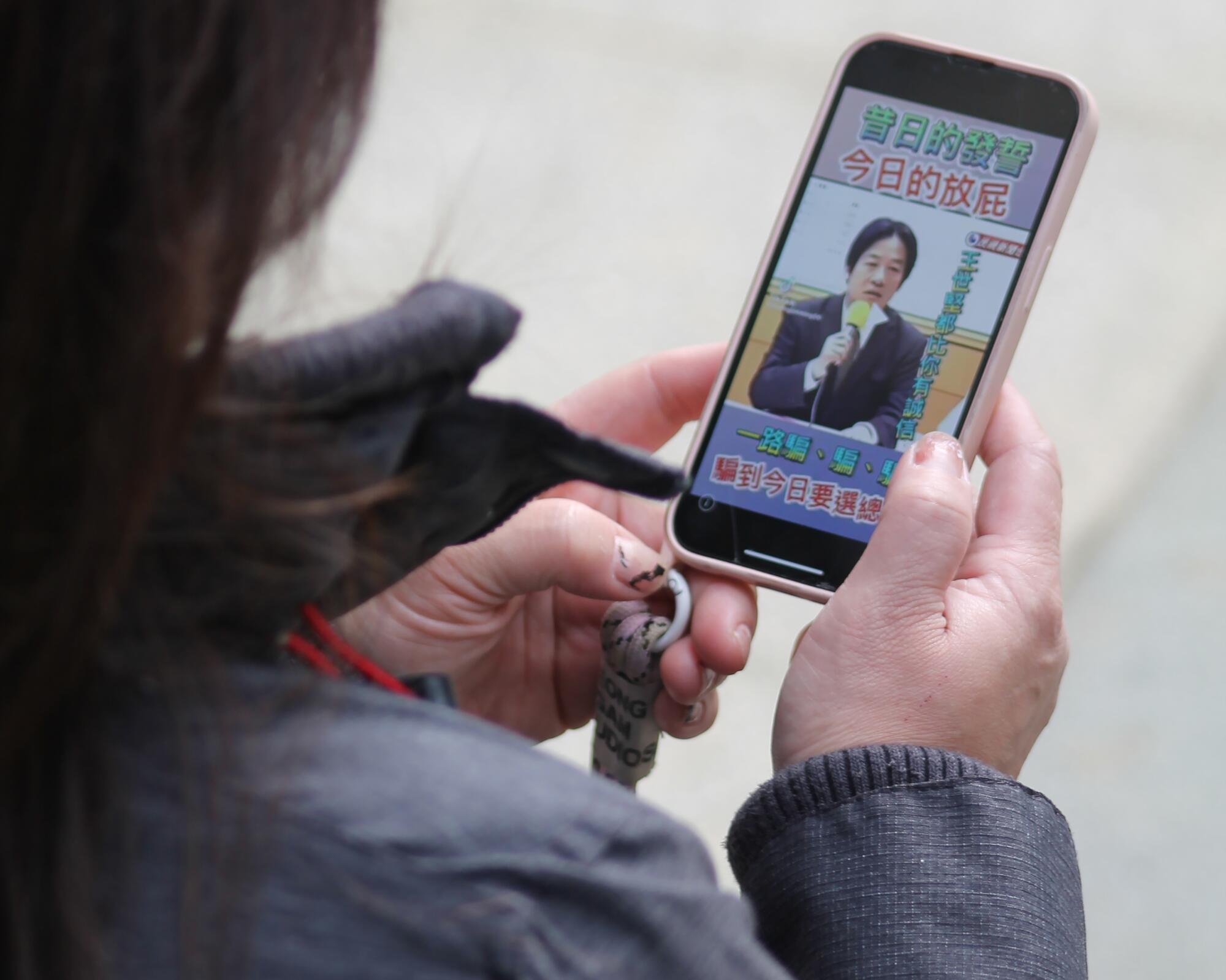
A woman looks at a social media post on her phone.
(Stephanie Yang/Los Angeles Times)
Both Hou Yu-ih of the opposition Kuomintang (KMT) and third-party candidate Ko Wen-je of the Taiwan People's Party (TPP) embrace friendlier attitudes toward China, and it would be a welcome change for Beijing.
According to an August report from Taiwan's Information Environment Research Center, which tracks disinformation, official and private Chinese actors have helped spread stories that portray the United States as anything from a weak ally to an active conspirator. in a plot to hasten the demise of Taiwan.
Chinese trolls have since expanded their criticism of the ruling DPP, according to Taiwan-based research organization AI Labs. It identified several other narratives pushed by Chinese actors last month, including the economic consequences of disrupting trade with China, the alleged erasure of Chinese culture in Taiwanese education, and claims that Lai illegally expanded his family home.
Analysts said that in previous Taiwanese elections, Chinese attempts to spread disinformation were more outlandish and easier to identify, marked by telltale mainland slang and IP addresses. This time, the efforts are more subtle and focus on magnifying existing anxieties, such as government corruption and shortages of eggs, energy and labor.
“What they want to amplify are real problems in Taiwan,” said Austin Wang, an assistant professor at the University of Nevada, Las Vegas, who studies disinformation in the United States and Taiwan. “His strategy has become more skillful and longer-term.”
Aided by advances in artificial intelligence, that strategy has blurred the line between routine political confusion and targeted operations aimed at influencing voter behavior.
The KMT, which favors warmer relations with China, has frequently attacked the DPP for pushing Taiwan toward war. Some Taiwanese media outlets have owners with business ties to mainland China and often publish stories that echo views from Beijing.
“If someone is pro-China, that is a valid political stance. But at what point does the government say that this is crossing the boundaries of what constitutes freedom of expression?” said Lev Nachman, a professor of political science at National Chengchi University in Taipei. “That balance is incredibly difficult to find in Taiwan.”
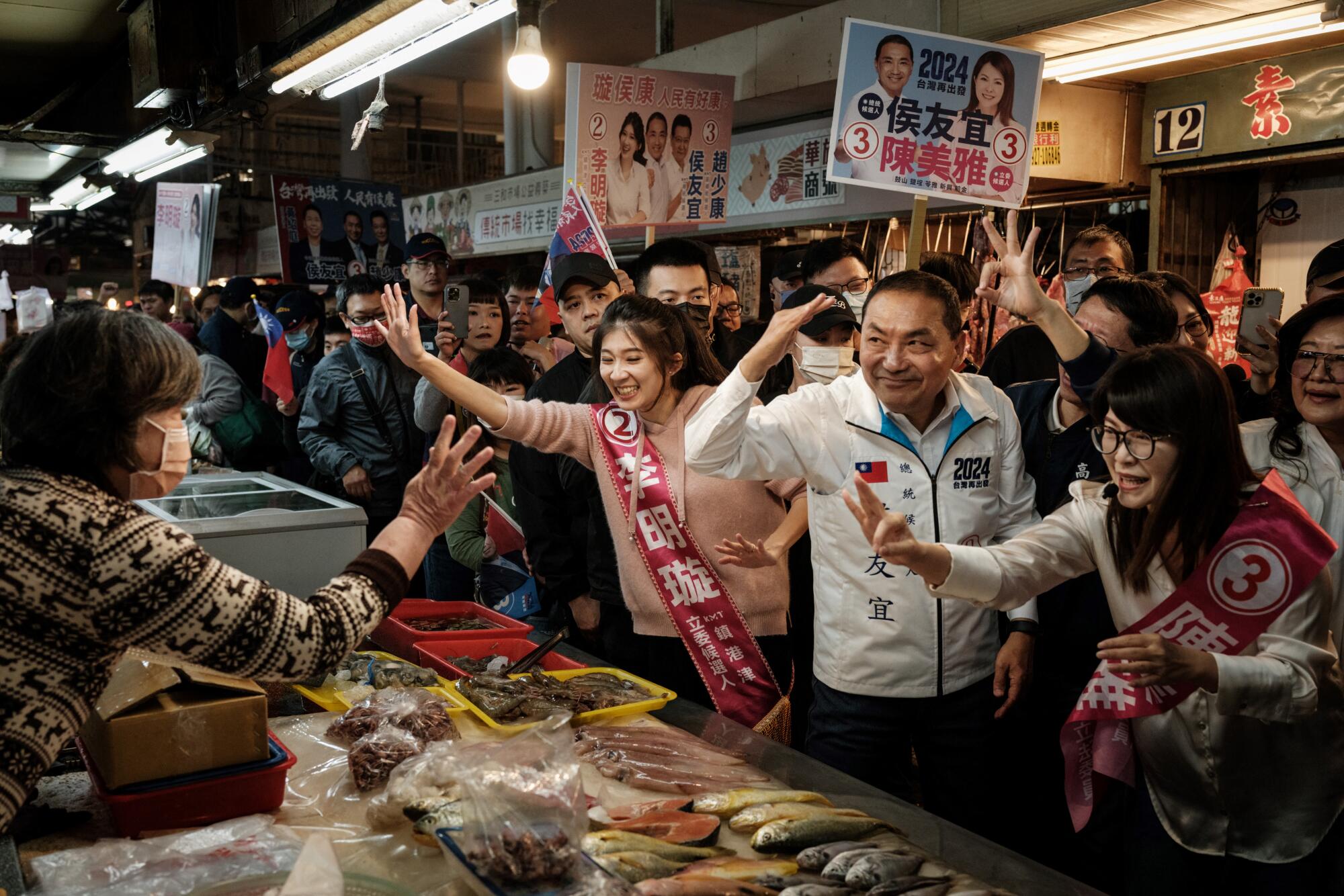
Center-right Hou Yu-ih, presidential candidate of Taiwan's main opposition Kuomintang party, visits Sanhe Market during a campaign stop in Kaohsiung on Wednesday.
(Yasuyoshi Chiba / AFP/Getty Images)
In June, Tsai, the outgoing president, warned that large-scale disinformation campaigns aimed at undermining democracy are one of the biggest challenges facing Taiwan. She said the government needs to work with civil society and fact-checking organizations to educate the public about misinformation.
Spokesmen for the KMT and TPP said that while some of the disinformation likely comes from China, most of it originates within the country and from political rivals.
The proliferation of dubious content in Taiwan is a symptom of widespread distrust in its mainstream media, which often pursues sensationalism and is politically biased. After martial law was lifted in 1987, the industry's rapid expansion in such a small market created hypercompetition that pushed media outlets to prioritize readers and viewership over accuracy.
While Taiwan ranked first in Asia for press freedom last year by Reporters Without Borders, a 2022 study by the Reuters Institute and the University of Oxford showed that only 27% of respondents trusted local media, the proportion lowest in the Asia-Pacific region.
Instead, many Taiwanese have turned to political commentators and online influencers, some of whose claims and arguments align with those of Beijing. That has raised concerns that China is using local figures to promote propaganda and even paying them for their services.
“Things that come from Taiwanese voices will be more effective,” said Tim Niven, a research leader at DoubleThink Lab, a Taipei-based nonprofit that studies misinformation. “If there is a tangle of orchestrated actions by foreign states and genuine organic local actions, then I don't think anyone has any idea what should be done about it.”
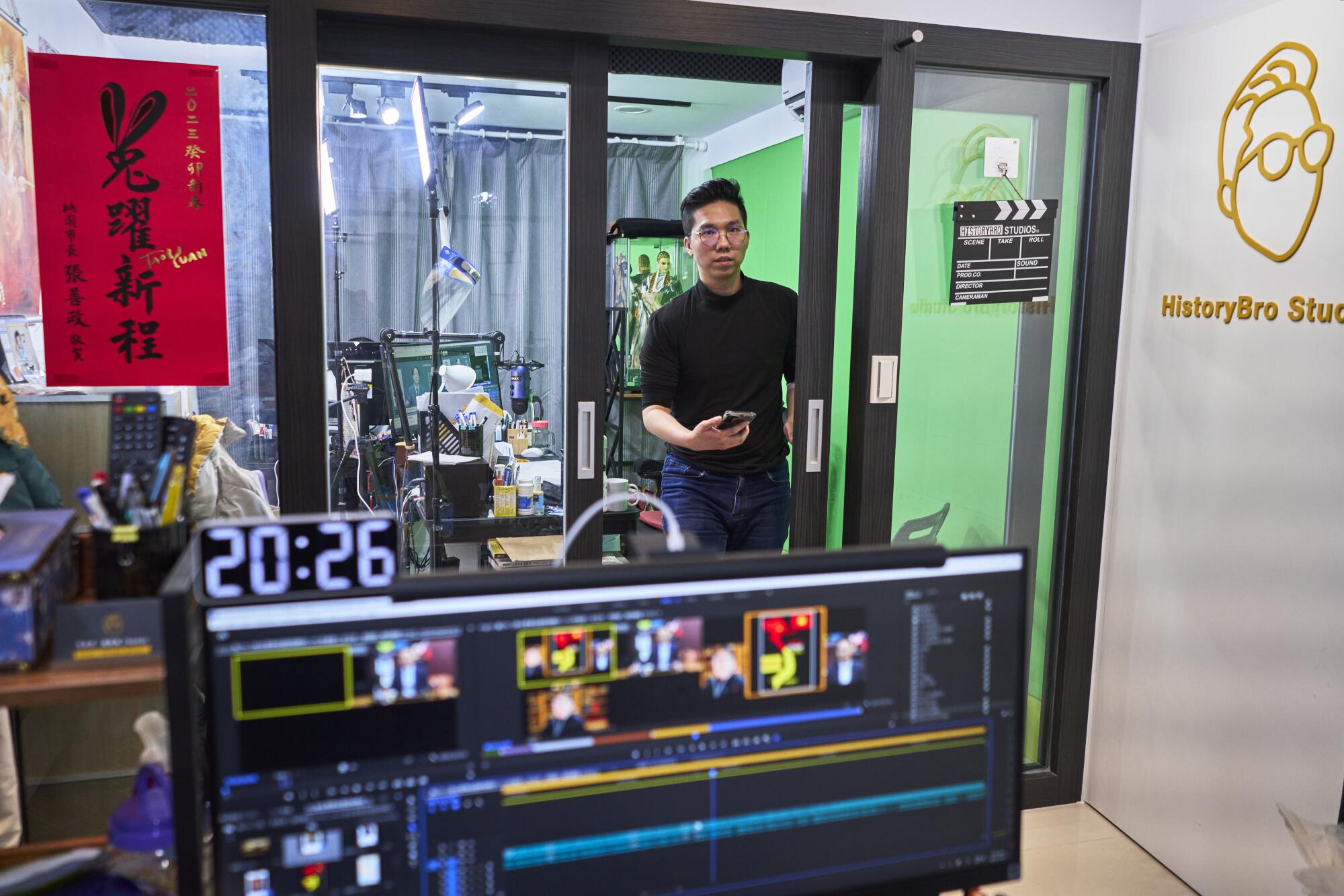
Lee Yi-hsiu, a political commentator known as History Bro, prepares for a live broadcast.
(An Rong Xu / For The Times)
Lee Yi-hsiu, a political commentator known to his 268,000 YouTube followers as History Bro, said he was asked by foreign media whether the Chinese Communist Party had paid him to spread pro-KMT views. His great-aunt, an ardent DPP supporter, once called him angrily and asked why he was accepting money from Beijing.
He also said that the Investigation Office of the Ministry of Justice visited him to ask him the same question. The ministry says it has no record of any contact or investigation into Lee.
Still, Lee denies any payments from China and describes his content as too moderate to make a living as an influencer. She said she fact-checks as much as possible and studies issues for hours before posting his comments.
“Accurate information won't necessarily generate traffic,” Lee said. “Conspiracy theories, rumors, news leaks, populism – this will generate a lot of traffic. But I think that's temporary.”
Among the most horrifying material to hit Professor Chiang's group chats is a video showing marching soldiers and blurred corpses on the battlefield in Ukraine.
“No matter how much funding or weapons the United States or Europe provide, the hardest thing for Ukraine to bear is the cost of human life,” intones a narrator, with the warning for Taiwan implicit.
But if the Ukraine war helped cement her in-laws' animosity toward the DPP and the United States, it had the opposite effect on Chiang herself.
After Russia invaded its neighbor, it began searching for more political news, using keywords like “war” and “Communist Party attacking Taiwan in 2027.” Most of her results ended up coming from the same pro-China media her in-laws read, media she is reluctant to trust.
He is also concerned about the beliefs of younger people, many of whom support Ko, the third-party candidate. Ko and the party he founded, the TPP, have made inroads into the youth vote by posting viral videos and tapping into their economic frustrations. He has positioned himself as an intermediate alternative to the two main parties.
But for Chiang it represents another extreme.
“He is more hateful,” she said. “I feel like children hate the government. They feel it's not fair: they don't have enough jobs, low wages and no housing. [They say:] 'This is not fair, that is not fair, not everything is fair.'”
Chiang voted for Tsai in the last two elections, seeing her as a step toward stronger international ties. While his in-laws worry that another DPP president will provoke an attack from Beijing, Chiang fears that a KMT or TPP victory would allow the Chinese Communist Party to exert more control over Taiwan.
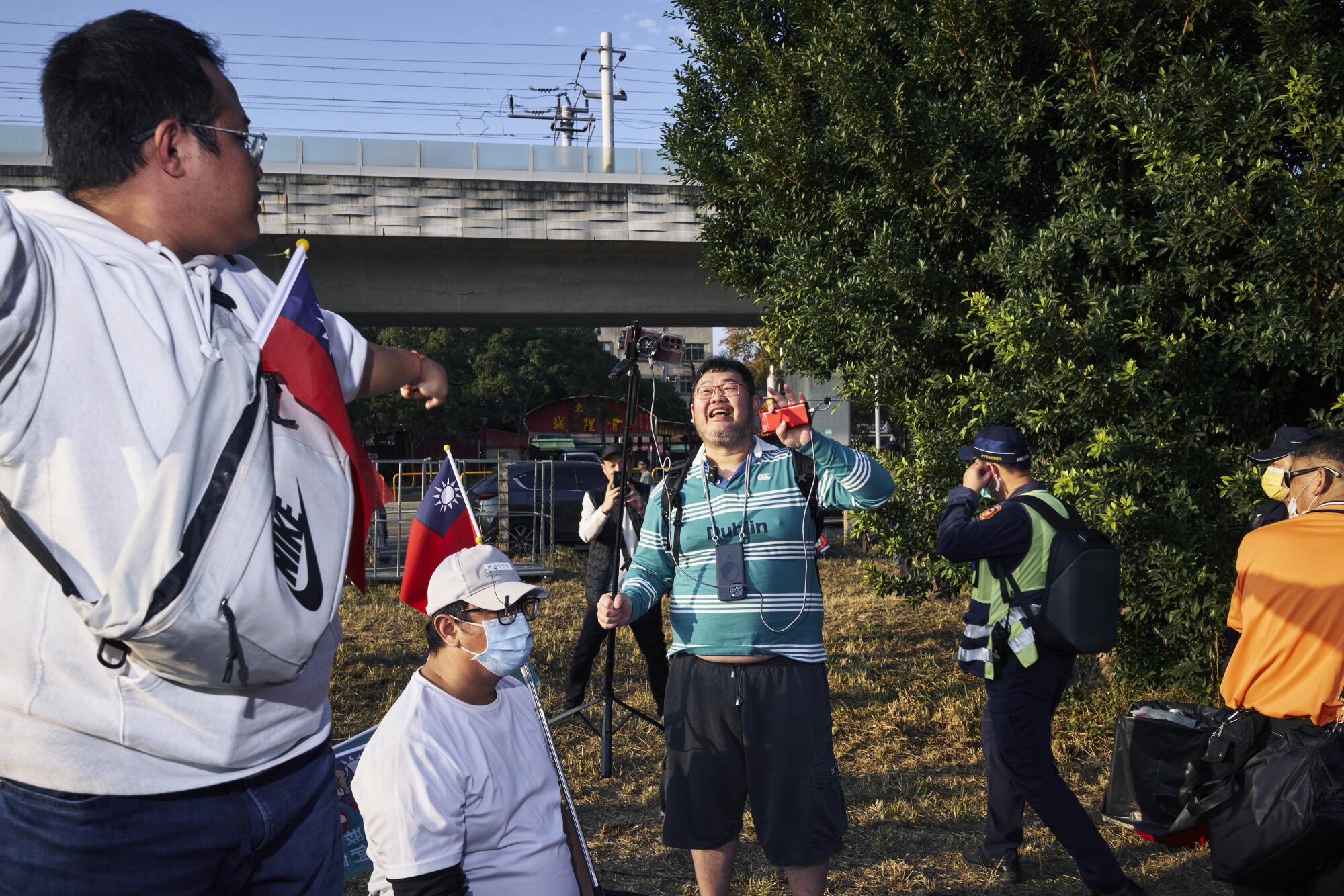
A speaker at a political rally asks Liu Yu, an influential politician known online as XXXXCat, center, to join him on stage.
(An Rong Xu / For The Times)
Like those of her in-laws, her fears are fueled by confusing information she finds online, from just the other end of the political spectrum. But she's not sure how to confirm if what she's reading is true.
She is particularly concerned about how she could make a living under Xi, since he has banned for-profit tutoring in mainland China. She has read that dozens of journalists have been banned from leaving, reinforcing her belief that Beijing would undermine Taiwan's freedom of expression. And she's afraid to visit herself, having heard that Chinese authorities open a security tracking file on every person who enters the country.
“People my age are probably more focused on our own world: my job, my business, my children, my family. Any news that comes to me, we just accept it,” she said. “I don't know if it's fake or fake news. “Now we don't know.”
Special correspondent Tzu-Wei Liu in Taipei contributed to this report.

